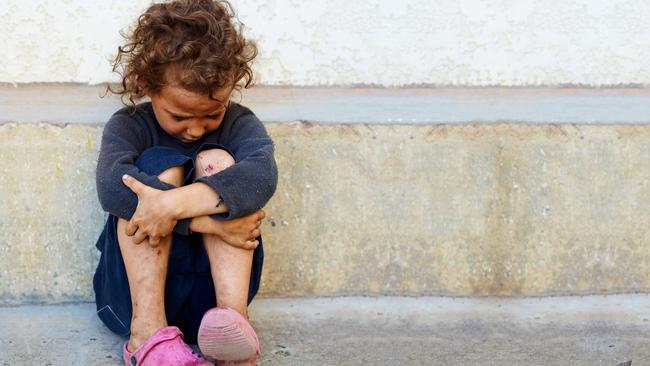Nobody is in favour of poverty. But many are sceptical of the solutions | Alexander Downer
The world is littered with stories of people who have escaped poverty into wealth, power or just middle-class comfort. They are great role models, writes Alexander Downer.
Opinion
Don't miss out on the headlines from Opinion. Followed categories will be added to My News.
The attempt last week by several welfare groups to hold a press conference at Adelaide Oval highlighting the plight of child poverty was, as a media event, a complete failure.
I felt sorry for the organisers who had obviously put a great deal of work into the event and wanted to highlight that over 60,000 South Australian children up to the age of 18 were living in relative poverty.
The media generally ran the excuse that they didn’t have enough journalists to cover the event.
That of course is disingenuous.
The truth is, they didn’t think this event was sufficiently newsworthy to excite the public.
For such a rich community it is alarming that so many children are growing up in poverty. Mind you, the definition of poverty is not “absolute poverty”.
The UN definition of poverty is people who are living on less than $US2 a day.
By that definition there are nearly 1 billion children in the world struggling with absolute poverty.
In Australia, ACOSS defines poverty as people earning less than half of the median income. Still, that’s a major social problem.

Rather than presenting the bald figures on child poverty, what would attract a high level of public interest and debate would be an attempt to find solutions to this problem.
Ask the welfare lobby what the causes of poverty are and they will tell you they are “complex”.
Ask them what the solutions are and they simply suggest higher benefits, cheaper rents and better-paid jobs.
My guess is that the first answer to the question is right.
There are many reasons why people live in poverty but as, to the second question, just increasing the level of benefits – as desirable as that may be – is an inadequate solution.
In many cases, people were born into poverty and the poverty is intergenerational.
Although no one policy will solve the problem of poverty, there are three things that as a society we could usefully do to help address it.
First, it is important to instil into the minds of people living in poverty, particularly the children, a belief there is an escape from poverty.
It is one thing to empathise with people who are struggling but it is another to portray them as victims who can do nothing about their victimhood.
The world is littered with stories of people who have escaped poverty into positions of wealth, power or just middle-class comfort. They are great role models.
Secondly, it is taboo to criticise parenting but let’s be frank: bad parenting is often a cause of poverty.
We need to face up to that harsh reality.
For a parent living in poverty, they are living in a stressful home environment, often accompanied by health problems and unstable jobs.
Children growing up in that environment often lack the love, care, guidance and educational encouragement which will help them escape from poverty.
Often it is parenting which perpetuates into generational poverty.
It’s not a question of criticising the parent or parental arrangements but understanding the circumstances they find themselves in.
And the best thing to do for the children is to give the parent guidance on how best to look after them with limited resources.
I think the public would be genuinely interested in a creative initiative which helped parents of young children and, in particular, parents-to-be with guidance on how best to bring up their children.
Thirdly, there’s the problem of drugs.
They are readily available and expensive. If parents are regular users of drugs and legitimise their use in the eyes of the children, then the children themselves will use drugs.

Worse, the children will become involved in the trafficking of drugs.
Presumably that is one of the explanations for knife crime in shopping centres – gangs attacking each other over drugs.
It’s one thing to have laws outlawing drugs but they are clearly very difficult to enforce. Direct contact with professional health workers might be the only solution.
There are a range of other issues associated with poverty but there is no doubt some of the solutions offered by political activists are just nonsense.
The deconstruction of the economic system will destroy its wealth-creating capacity, some of which can be used to help people out of poverty. Confiscating the prosperity of the mainstream of society won’t help either.
Addressing poverty requires providing personal help, way beyond just dishing out financial benefits.
Providing that help is labour-intensive and it’s difficult to find the professionals who can do it. People who can give advice on parenting, drug rehabilitation and financial management is going to be a key to reducing poverty.
A plan like that might generate some media interest, because don’t underestimate the desire of the public to see poverty reduced.
Nobody is in favour of poverty but people have become very sceptical of some of the solutions politicians offer – and for good reason.
Alexander Downer was foreign affairs minister from 1996-2007, and high commissioner to the United Kingdom from 2014-18.
More Coverage
Originally published as Nobody is in favour of poverty. But many are sceptical of the solutions | Alexander Downer





